
Driving our several thousand kilometers through Myanmar’s rural areas I saw a lot of livestock. Because I love animals I can’t help myself…my head swiveled for a split second judgment on the condition of every one we passed, no matter how far out in a field, or how much underwater.

Happy for me and my nerves, nearly all the zebus, water buffaloes, horses, pigs and chickens looked plump, glossy, well-feathered, and carefully tended. And I saw a lot of them, hundreds, every day, all day.
Now I have to tell you that the air con quit cooling half way through the trip, just as we left the coolest part of the country for the hottest part. I attributed this to a momentary lapse of attention from our banyan tree. The upshot was windows open to all the, ummm, music of rocky, dirt roads driven at appropriate speed to get us past the slow combis, trucks and motorbikes. All those motorbikes, by the way, have created a demand for mom&pop fuel stations, where they’ll stop without any sort of signaling, even if their bikes had turn signals….. They’re everywhere, as anyone with an empty water bottle can set up shop. Bear with me, as I really am going somewhere with this story line, despite the slight side tracking.

Since Myanmar pavement is only one and a half cars wide,we did a lot of veering off it, chattering onto the dirt time and again, dodging oncoming bullock carts, school children and other things one should not hit.
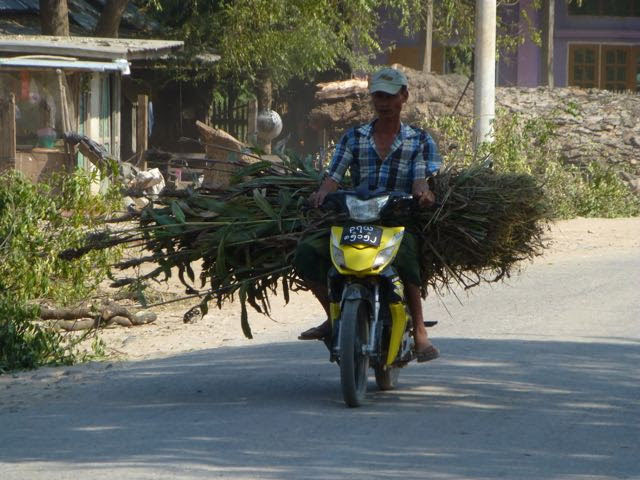
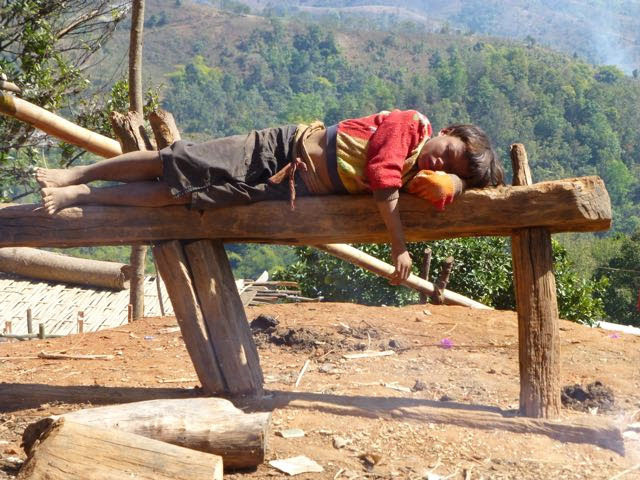
To focus my mind (I swore only once and immediately regretted it), I found myself making up riddles using the most obvious subject to hand: animals. These are painful as well as somewhat embarrassing; I expect they’ll generate the groan heard around the world. But I’m not above humiliating myself by sharing them, just so you can see what really happens after hours in the car. If you give up and want the answers , check the end of this dispatch.
1: Why did the pig cross the road?
2: Why did the Englishman marry the psychic pig?
3. Why did the cows cross the road?
4. What did the water buffalo shout to the chickens hauling his cart?
But, back to proper dispatch material: Driving from Mogok to Tagaung, we stopped in Te-Z for tea and snacks, as was our mid-morning habit. Saw, our passionate and resourceful guide, knowing of our interest in Myanmar’s WWII history, asked the teashop owner if she knew any area war relics. I imagine her response was, “Do I? In fact, I have a live one!”and she left us to our happy fried snacks. Ten minutes later she returned, walking slowly beside an elderly man: Mr U Kyaw Shin, a small dapper 91 year old dressed in a grey shirt, burgundy sweater and navy blue longyi.
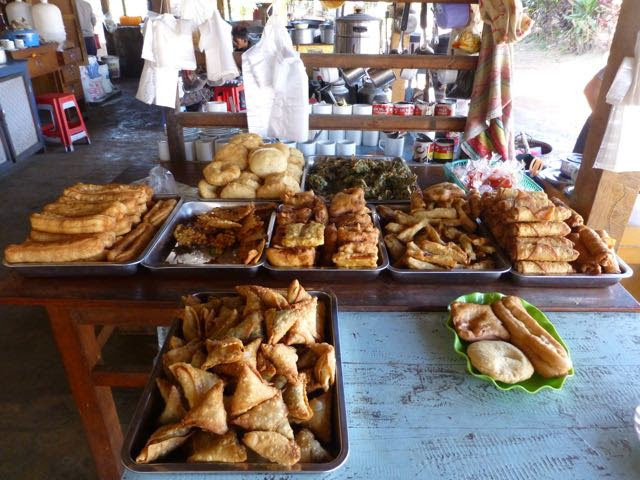
Through an hour of story-telling translated by Saw we learned he was 19 when the Japanese arrived in town, on their push east to the Chindwin River. Most people in Te-Ze fled; he found a dictionary and learned Japanese. “What were they like?” I asked him. He laughed ruefully, all three teeth showing, dark eyes crinkling into his fine black brows. “All soldiers are the same!” he said, having lived not only through the occupation, but the military regimes that followed.

He and three others were taken with the Japanese as servants, as they pressed rapidly east following the British retreat. After Flying Tiger aircraft (locally called Twin Buffalos) flew over, the Japanese would say, “We will lose. We know this.” As my questions unravel more of U Kyaw Shin’s story, people gather round, listening rapt and silent to his tales from 70 years ago. I imagine the younger ones have no idea what had happened to him. His capable carpenter’s’ hands, now like stones wrapped in dark brown parchment, gesture vividly as he recounts his stories. Only when he says, “I am the only one of the four who made it home,” do they drop to his lap as he falls silent.
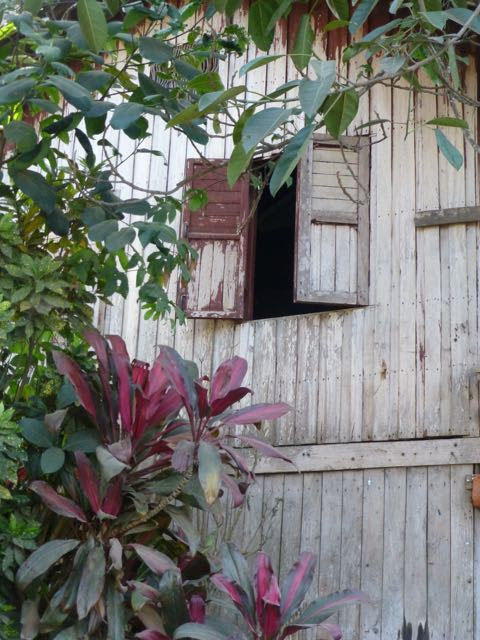
No trip would be complete if I didn’t include some food items. Whether in the chill of the Chin Hills at 8,800 feet, where I sleep in camisole+wool top+sweater+fleece jacket+pants+socks under three heavy fleece quilts and still am cold, or the hot plains where the devil’s breath blows on my cheek, his hot hands ruffle my hair and my eyes feel like hell’s cinders, I have been perusing markets. This trip more than ever I’ve found myself enchanted by colors and shapes, the unplanned patterns that create a beauty unrelated to the object itself.
Look at bananas…
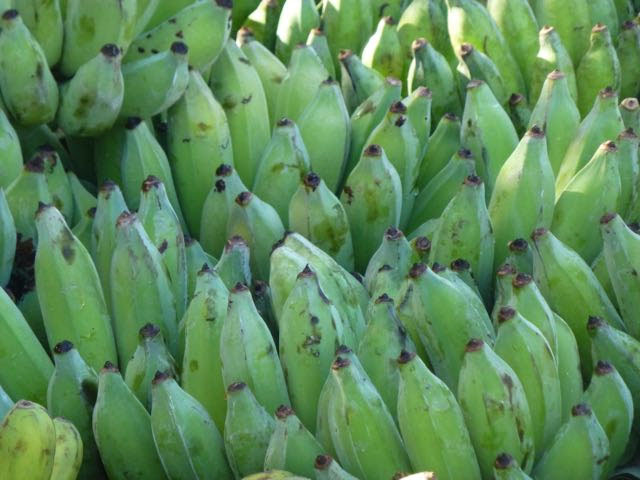
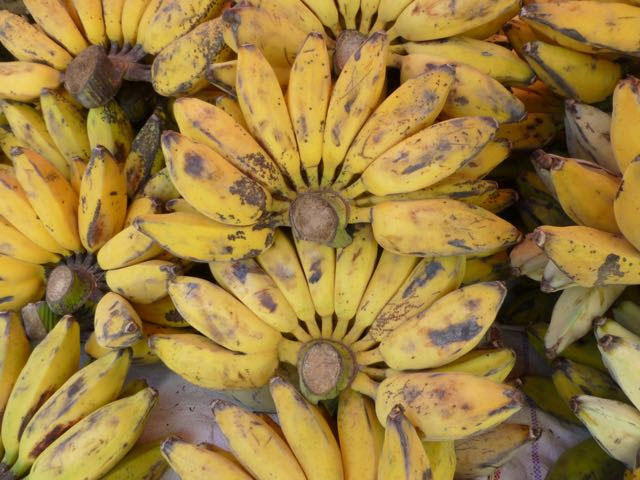
Or fish, each dried in its particular identifiable shape…
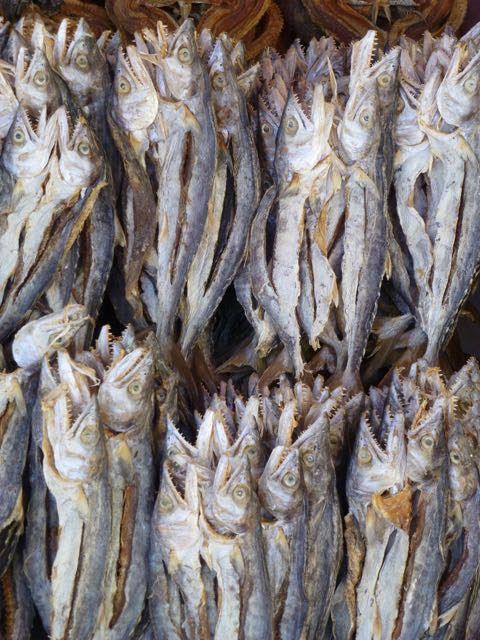
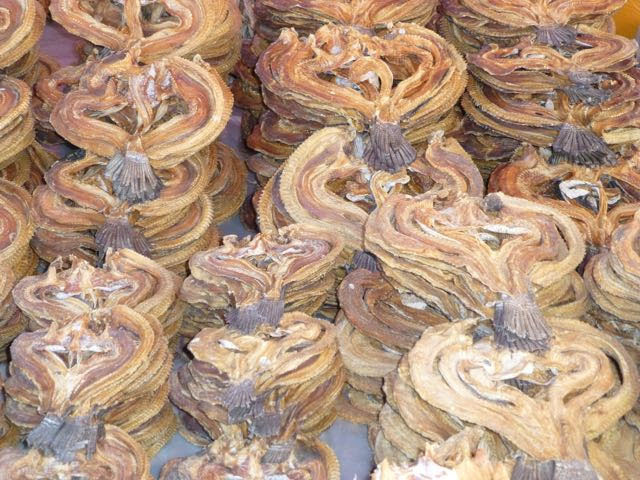
Vegetables, fresh and cured….
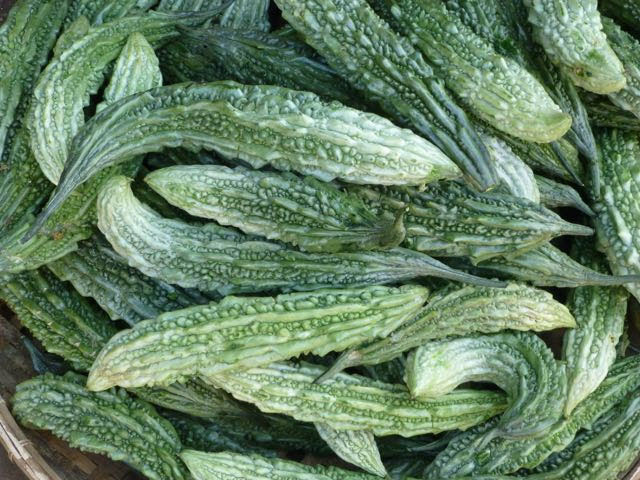
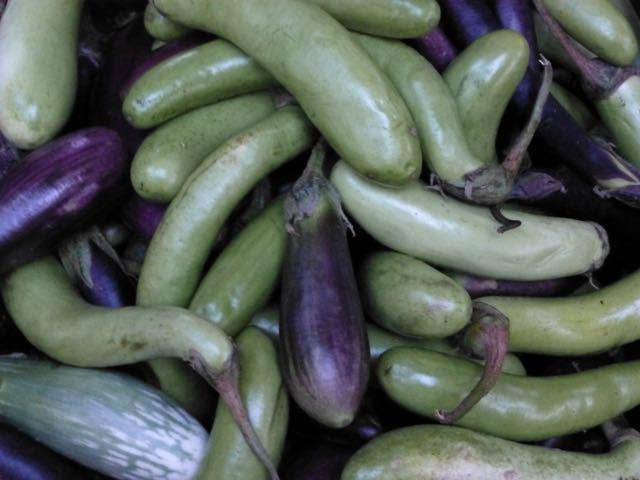

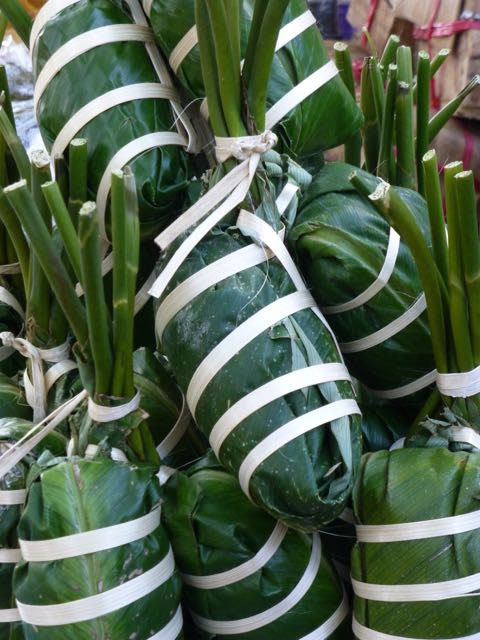
Purple rice cakes ready to conjure into a morning meal….

Or bright yellow chickens in their red blood…
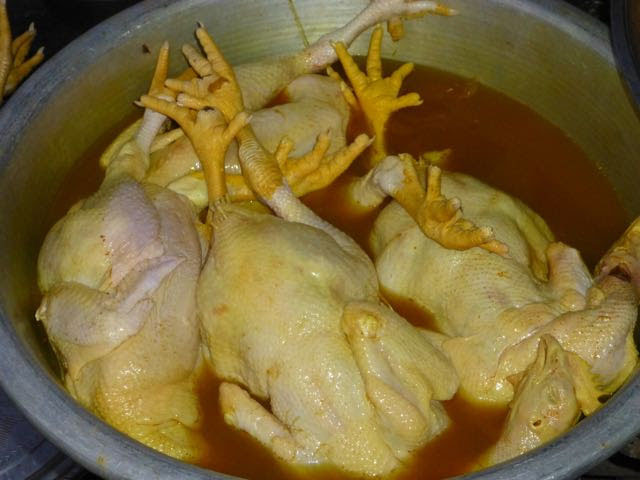
..next to related parts sought by the clever cook….

…every market fills me with such pleasure that I find it hard to leave.
But we are now in Yangon, ready to depart on February 16. Brunhilde has been delivered into MoeMoe’s capable hands and is presently resting, cleaned of dust and emptied of Snickers, in a dockside warehouse preparatory to shipping out on February 25. As I repack, I think of all the generous and welcoming people we met, drank tea with, talked to.
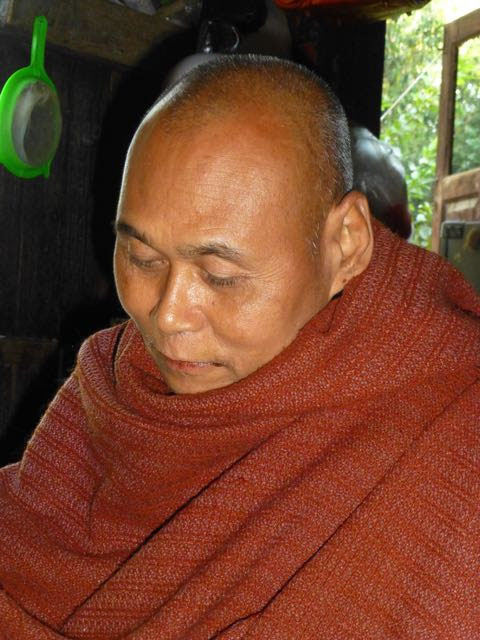
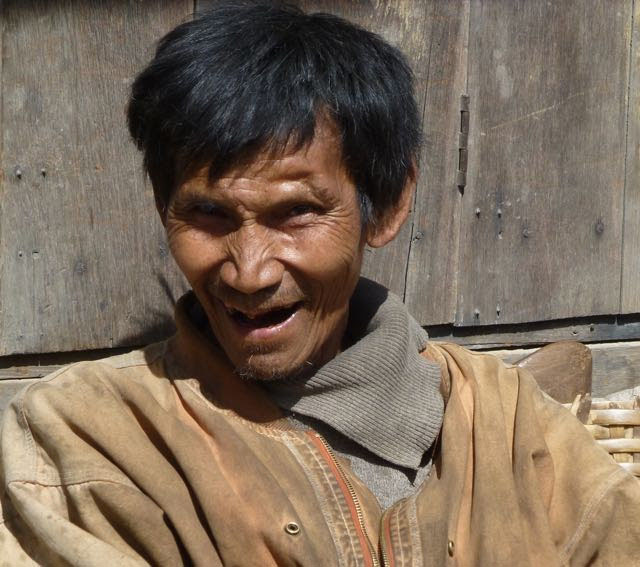
The lovely children, so tenderly looked after …
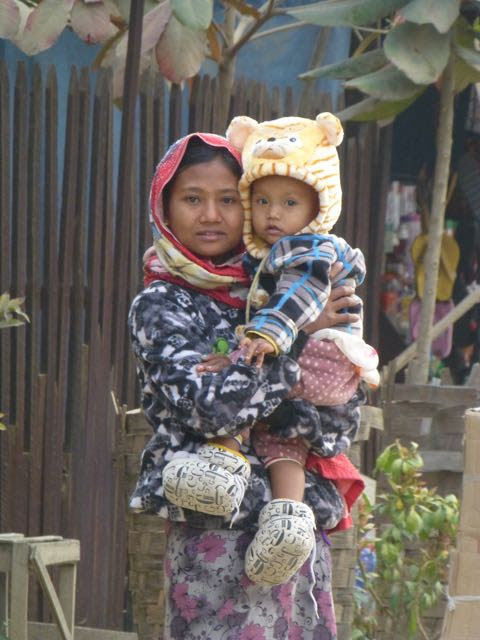

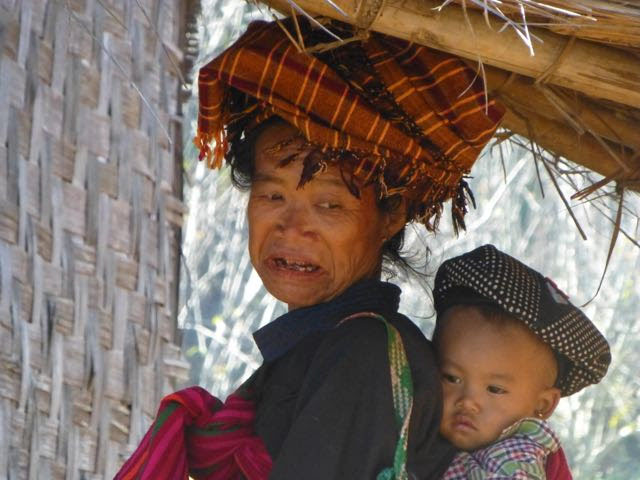
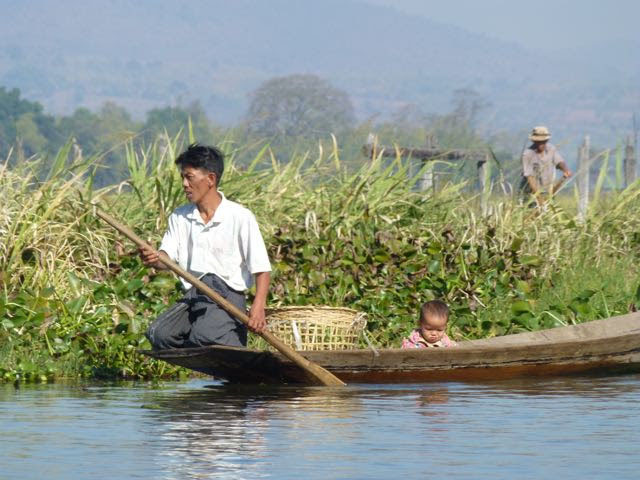
And the indelible images that Myanmar shared with me these past three weeks: Crimson spikes of poinsettias and luscious pink hibiscus… Soft grey mist shielding a roadside house and sleepy cows….
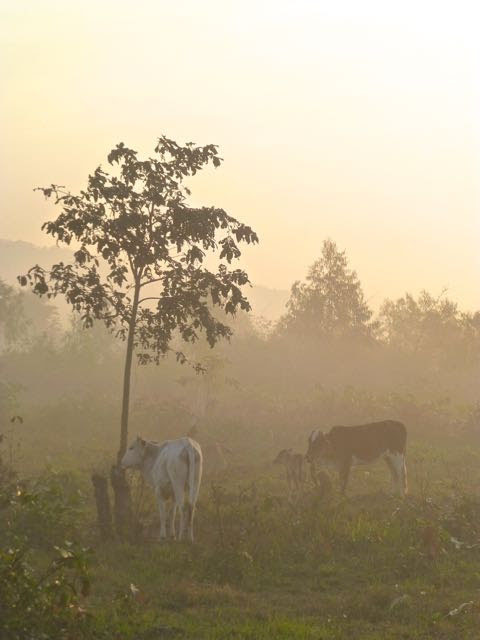
The music of wood bridges playing plick-squeak-thonk as we drive over the loose planks…air that smells of burnt toast and caramelizing sugar…..Stocky black water buffalos grazing near a field of nodding yellow sunflowers.
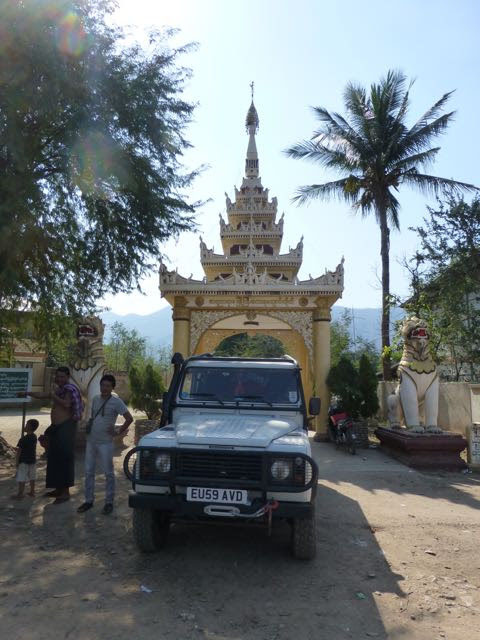
It’s been more than wonderful trip . Thank you for reading. If you still want to know the answers to the four riddles, here they are. Don’t say I didn’t warn you.
1. She was being baconed from the other side!
2. He loved sow sages!
3. She herd the other side was better.
4. Pullet!!!
About Dina
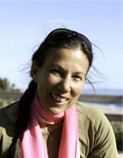
Dina Bennett was born in Manhattan, New York, in 1955, to a French mother, an Austrian father and immediately attentive older sister. The new foursome soon left the city for a house in the suburbs, with a garden large enough for the budding tomboy to run around. Her parents made sure weekends were spent on hiking trails or ski slopes; Dina took to these activities like a duck to water, thrilled to have the chance to impress upon her tall, slender blonde older sister exactly who was tougher. The summers of her youth were spent in France, Switzerland and Italy, hopelessly comparing her moody self to her sunny, chic French cousins.
Her competitive spirit and generally anxious outlook on life continued at Pomona College, Claremont, California where she studied sociology; her nights were spent perfecting cribbage moves and breaking into the dining halls to satisfy post-midnight cravings.
Following graduation, she moved to Boulder, Colorado, worked for several cultural organizations, got her MBA and bided her time till her future husband, Bernard, arrived in town. He was French, which might have been a bad thing, but proved not to be. They married six months after meeting and have remained married despite the sad statistics depressing other baby boomers.
After several years with a Denver PR firm using her sense of humor and gift with words to promote major sports franchises, financial institutions and hospitality companies, she decided to join Bernard in his fledgling software localization company. Together they built and ran a dynamic and successful firm, proving you can love someone and still hate them when they disagree with you publicly in a business meeting. The business took all her energy for twelve years and required postponing the myriad trips that she had imagined the two would take together, eventually leaving Dina a fuming mess of delayed gratification.
On selling the firm at the turn of the millenium, Dina and Bernard moved to a rural cattle and hay ranch in the northern Colorado mountains. There, her dawn-till-dark lifestyle in the company of moose, tractors and mustangs, beaver pelts and elk carcasses, gave new meaning to the phrase, "not working anymore." Click on teh Ranch tab to read about her experiences adopting mustangs, loading hay trucks and building fences.
Dina has been untangling herself from barbed wire to join Bernard on extended road trips in far-off places for years now, seeking out back roads and off-map villages in yearly attempts to get themselves into ever deeped vehicular trouble.









